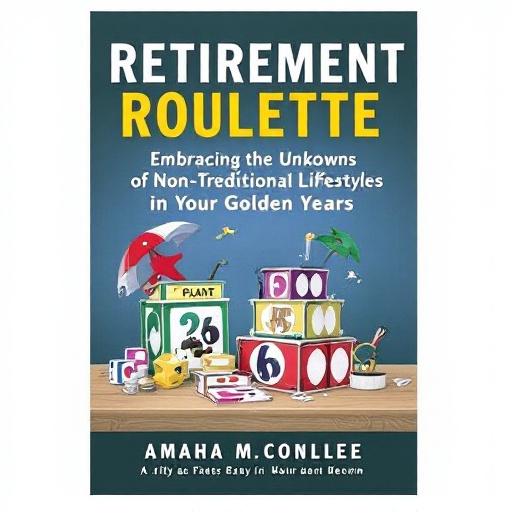Featured Articles
- "Beyond Savings: How Gardening and Hobbies Can Transform Your Retirement Plans"
- Reimagining Retirement: How Virtual Reality Could Transform Senior Living and Financial Independence
- "Rethinking Retirement: How Eco-Friendly Living Is Shaping Future Financial Planning"
- Retire in Style: Exploring the Rise of Sustainable Living Communities for Seniors
- "Retirement Reimagined: How Eco-Conscious Living is Shaping Future Financial Landscapes"
"Beyond Savings: How Gardening and Hobbies Can Transform Your Retirement Plans"
"Beyond Savings: How Gardening and Hobbies Can Transform Your Retirement Plans"
Retirement isn't just about financial savings; it offers a transformative opportunity for personal growth and fulfillment through gardening and hobbies. These pastimes can enhance mental well-being and lead to a richer, more rewarding retirement experience.
The Emotional Landscape of Retirement
Retirement can often be viewed as the end of a long, hard-working journey. However, it’s more accurately a transition into a vibrant chapter filled with new adventures. Research underscores this sentiment: a 2019 study from the National Institute on Aging found that individuals who engage in hobbies during retirement report a 25% higher level of happiness than those who do not (NIH, 2019).
The Benefits of Gardening
Let’s dig deeper into one of the most rewarding hobbies: gardening. This timeless activity comes with a multitude of benefits. For starters, gardening serves as an excellent form of physical exercise, keeping retirees active and engaged. A study from the University of Illinois found that 30 minutes of gardening can burn up to 150 calories, effectively combating the sedentary lifestyle that often accompanies retirement (University of Illinois, 2021).
Enter the Therapeutic Garden
But the benefits don’t stop at physical health; they also extend into mental wellness. Gardening has been shown to decrease symptoms of depression and anxiety. According to a publication by the American Horticultural Therapy Association, participants in gardening programs experience reduced stress levels and improved cognitive function (AHTA, 2020). It’s no surprise that community gardens are increasingly being utilized in therapy sessions!
Hobbies: The Hidden Gems of Retirement
Now that we’ve cultivated an appreciation for gardening, let’s talk about exploring various other hobbies. Whether it’s painting, writing, or learning a new language, indulging in your interests can be immensely fulfilling. Hobbies push your boundaries and introduce you to new people, which is vital for emotional health. When you retire, a study published in the Journal of Occupational Health Psychology found that individuals who maintain social interactions have a 20% lower risk of cognitive decline (Journal of Occupational Health Psychology, 2022).
A Personal Case Study
I want to share the story of my friend, Sarah, who retired at the young age of 62. Having worked as a nurse for over 40 years, she found herself at a loss when her career came to an end. In search of fulfillment, Sarah decided to take up painting. One weekend, when she was invited to a local art class, she discovered not just her passion for art but also an entire community of artists. Over the course of a year, Sarah’s passion flourished, and she even held her first gallery show! Her journey not only reignited her creativity but also enriched her social circle.
The Financial Aspect: Savings and Beyond
You might be wondering about the financial implications of these pastimes. While hobbies and gardening can incur costs, they can also yield savings. Growing your own vegetables, for example, not only cuts grocery bills but also results in healthier, organic food. According to a study by the National Garden Bureau, gardening can save households an average of $600 a year on their grocery bills (NGB, 2023).
Social Connections Through Shared Interests
A pivotal aspect of hobbies and gardening is their role in fostering social connections. Many retirees feel isolated after spending years surrounded by coworkers. Joining clubs, classes, or community gardens can dramatically alter that sentiment. Did you know that less than 20% of retirees actively go out to meet new friends after retirement? A simple gardening or art class can change that statistic considerably!
Breaking the Ice
Imagine walking into a cozy community garden spot, tools in hand, and immediately being greeted with welcoming smiles. You exchange small talk about planting techniques or seasonal crops. Suddenly, you're not just digging in the dirt—you're digging into friendships. Such interactions can lead to lasting relationships and plans for excursions, potlucks, or collaborations. Not to mention, the ability to share your gardening successes (or failures!) can be nothing short of therapeutic.
Boosting Creativity and Cognitive Function
Creative hobbies like painting, crafting, or even writing can significantly boost cognitive function. Engaging in creative tasks stimulates neural connections, combating cognitive decline, which is crucial as we age. A research article published by the American Psychological Association shows that creative engagement can enhance problem-solving skills and memory (APA, 2021). So, the more you paint, write, or craft, the sharper your mind may remain!
Humorous Take: Gardening for the Clumsily Inclined
One might argue that gardening is only for the "green-thumbers" among us. However, I beg to differ. Allow me to introduce you to my own backyard disaster: my plant 'murder' series. You see, I can grow just about anything... from seed to compost in a matter of weeks! But every now and then, amid all that composting, I sustain an impressive collection of plant casualties. Yet, instead of viewing these as 'failures,' I see them as lessons—life gives you lemons, and maybe I should just stick to tomatoes!
Beyond Personal Growth: Gardening for the Community
As you dive into your new hobbies or gardening adventures, consider how you might share your experiences with others or give back to your community. Volunteering your skills or knowledge not only revitalizes local spaces but can also create a sense of purpose that extends well into your retirement years. Programs like “plant a row” encourage gardeners to donate extra produce to food banks, fostering both community spirit and nurturing values of generosity.
The Role of Technology in Hobbies
The modern age has brought technology to our fingertips, offering a myriad of opportunities to enhance your hobbies or gardening skills. Online forums, social media groups, and educational websites can provide invaluable resources, from gardening tips to tutorial videos for learning a new language. Websites like YouTube and gardening blogs are treasure troves filled with information that will allow you to explore and deepen your interests.
Envisioning a Part-Time Retirement Career
If you find yourself with more time than cash during retirement, consider turning your hobbies into a small income source. Websites such as Etsy allow creators to market their handmade crafts, while platforms like Chef's Plate enable home cooks to run meal prep services based on their culinary skills. It can be the perfect way to combine passion with a revenue stream, like how my neighbor turned her knitting hobby into a small-scale business, funding her travels abroad!
Statistical Outlook: The Transformative Power of Hobbies
As we embark on this journey of new beginnings, various studies confirm the positive impacts of hobbies on overall well-being; the National Institute on Aging indicated that retirees who engage in hobbies are up to 40% less likely to experience chronic loneliness. These statistics illustrate a crucial finding: hobbies like gardening and crafting don’t just fill the time—they enrich our lives.
Creating Your Retirement Roadmap
Now, while savings accounts and financial security are vital for your retirement, equally worthy is investing time in cultivating hobbies that nurture your soul. As you draft your retirement plans, include space for activities that ignite your passions. Retirement isn’t merely about what you save; it’s also about what you nurture—your mind, body, and community.
Conclusion: Planting the Seeds for a Joyful Retirement
Ultimately, gardening and hobbies represent more than just enjoyable pastimes; they signify growth, community, and adaptability. As an individual in my 60s who has found new meaning in painting and cultivating a garden, I can attest to their power to transform one’s retirement experience. So as you contemplate the years ahead, consider this: What seeds will you plant in your garden of life? The choices are limitless, and the harvest promises to be rich.




